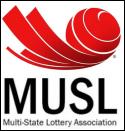Legalized Sports Betting Increases Gambling Accessibility and Transparency
BOSTON, MA (February 14, 2023) — Massachusetts legalized sports betting with a retail launch on Jan. 31 this year, increasing the accessibility of sports betting to a broader audience and creating a safer sports-betting ecosystem.
Massachusetts Council on Gaming and Health’s Chief Communications Officer Phil Sherwood said legalized sports betting allows for more transparency and consumer protection. For example, if a person illegally placed a sports bet using a bookmaker, or bookie, there are fewer consumer protection measures in place. When using a bookie, a bettor is not guaranteed that payment is timely or comes at all because of the act’s illicit nature.
Payments are more reliable at a legitimate operation like WynnBET Sportsbook at Encore Boston Harbor because they are overseen by the Massachusetts Gaming Commission.
Sherwood warned that increased accessibility draws in more bettors, which puts more people at risk for gambling addiction, especially young men, who are among the most likely to be interested in sports.
“What we’ve seen in other states is young men seem to be disproportionately affected,” Sherwood said. “That’s the demographic that we’re likely to see an uptick from.”
Sherwood said the gambling industry is expanding quicker than his council’s budget. He said his organization had made a few adjustments to counter the deluge of contacts for problem gambling support.
One function the council has implemented is 24/7 online chat support where people who need help with problem gambling or want answers about responsible gambling can get them any time.
Another feature the council offers is helping people get on a voluntary self-exclusion list for casinos and sportsbooks. Some people who struggle with gambling put themselves on the list as a preventative measure to ensure a sportsbook will not let them place additional wagers.
Since Massachusetts legalized sports betting, Sherwood said there has been an uptick in people who have contacted them so they could be put on the voluntary self-exclusion lists.
However, Sherwood clarified that the vast majority of gamblers do so responsibly and in a way that does not endanger their health. He said the council estimates that between one and two percent of gamblers have a gambling disorder. Yale Medicine estimates that about one percent of the United States population has a gambling disorder.
Some gamblers are already enjoying the ambiance at the WynnBET Sports Bar at Encore Boston Harbor. The sports bar within Encore is next to the more conventional cages where bettors place a wager with a teller and are then handed a stub. There are also kiosks where bettors can place their bets on machines.
Boston resident John Rogers was eating a sandwich at the WynnBET Sports Bar on Monday, Feb. 6, while watching a golf match he had bet on through Encore’s sportsbook.
Rogers said he likes the environment at the sports bar and that the legal sportsbook Encore runs gets him in the door more often than he otherwise would.
“The access is better,” Rogers said. “I don’t have to hunt down other places.”
Rogers said that he had been on third-party sites like Bovada in the past, but now with sports betting being legal, he no longer needs to do that to place wagers.
Encore Boston Harbor and DraftKings did not respond to interview requests concerning this story.
Written by: Lincoln Son Currie
SOURCE: Boston University News Service.



























